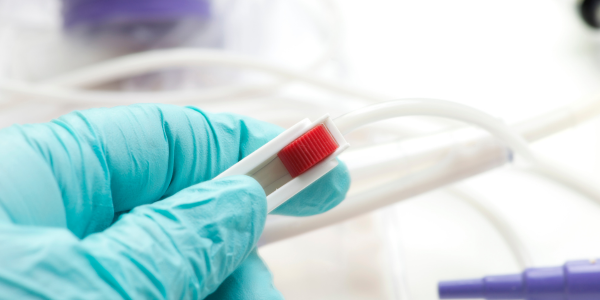Gastritis, a term that may sound familiar but is often not fully understood, is a prevalent digestive disorder that affects millions of people worldwide. While it may seem like an everyday occurrence, gastritis can have a profound impact on an individual’s well-being when left untreated or unmanaged. In this comprehensive guide, we embark on a journey through the intricate world of gastritis, shedding light on its causes, symptoms, and most importantly, equipping you with practical strategies for effective management and relief.
Unveiling the Complexity of Gastritis
Gastritis is not a single, monolithic condition, but rather a diverse group of disorders characterized by inflammation of the stomach lining. This inflammation can arise from various causes, leading to a range of symptoms and clinical presentations. To understand gastritis fully, one must explore its multifaceted nature:
The Culprits Behind Gastritis
To comprehend the causes of gastritis, it is essential to appreciate that this condition is often a consequence of various factors. Whether it’s due to bacterial infections, lifestyle choices, or underlying medical conditions, gastritis can develop as a result of:
- Helicobacter pylori (H. pylori) Infection: This common bacterium is a leading cause of gastritis. Understanding how it infects the stomach lining is crucial in grasping the origins of gastritis.
- Nonsteroidal Anti-Inflammatory Drugs (NSAIDs): The frequent use of NSAIDs, such as aspirin and ibuprofen, can irritate the stomach lining and contribute to gastritis.
- Autoimmune Reactions: In some cases, the body’s immune system mistakenly attacks the stomach lining, leading to autoimmune gastritis, a specific form of the condition.
- Alcohol and Stress: Lifestyle factors, including excessive alcohol consumption and chronic stress, can exacerbate gastritis symptoms and contribute to its development.
The Diverse Spectrum of Symptoms
Gastritis is characterized by a wide range of symptoms, which can vary in severity and presentation from person to person. Recognizing these symptoms is essential for early diagnosis and effective management:
- Burning or Gnawing Pain: The hallmark symptom of gastritis is often a burning or gnawing pain in the upper abdomen, commonly referred to as indigestion.
- Nausea and Vomiting: Gastritis can trigger nausea and, in some cases, vomiting, leading to discomfort and disruption of daily life.
- Loss of Appetite: Many individuals with gastritis experience a reduced appetite, potentially leading to weight loss or nutritional deficiencies.
- Bloating and Fullness: A sensation of bloating or fullness after eating small amounts of food is another common symptom of gastritis.
- Black or Bloody Stools: In severe cases, gastritis can lead to gastrointestinal bleeding, resulting in black or bloody stools.
Effective Management and Relief
While gastritis can be disruptive and uncomfortable, the good news is that it is often manageable with the right approach. Whether it’s through dietary modifications, lifestyle changes, or medical interventions, effective management strategies can alleviate symptoms and improve quality of life.
In the sections that follow, we will delve deeper into the causes and types of gastritis, explore diagnostic methods, and provide practical guidance on managing this condition. Our goal is to empower you with the knowledge and tools needed to understand gastritis thoroughly and take proactive steps toward its effective management and relief.

1: Unraveling the Causes and Types of Gastritis
Gastritis: A Multifaceted Condition
Gastritis is not a single, uniform condition; rather, it encompasses a spectrum of disorders, each with its distinct causes and characteristics. To fully grasp the complexity of gastritis, it’s essential to explore its diverse types and the factors that contribute to its development.
Acute Gastritis
Causes and Characteristics:
Acute gastritis is typically caused by irritants like alcohol, spicy foods, certain medications (e.g., NSAIDs), and bacterial infections, with Helicobacter pylori (H. pylori) being a common culprit. This type of gastritis often presents with sudden and intense symptoms, including abdominal pain, nausea, and vomiting.
Chronic Gastritis
Causes and Characteristics:
Chronic gastritis, as the name suggests, persists over an extended period and can result from various factors, including H. pylori infection, autoimmune reactions targeting stomach cells, or long-term NSAID use. Its symptoms may be milder and more chronic, including indigestion, a sense of fullness, and occasional nausea.
Autoimmune Gastritis
Causes and Characteristics:
Autoimmune gastritis is a specific form of chronic gastritis where the body’s immune system erroneously attacks the stomach lining. This immune response can lead to damage and, eventually, the reduced production of intrinsic factor—a protein essential for vitamin B12 absorption. Consequently, autoimmune gastritis can result in vitamin B12 deficiency, which may lead to anemia and other health issues.
The Role of Helicobacter pylori (H. pylori)
H. pylori infection is a major player in gastritis development and a key factor in understanding its causes. This bacterium is adept at colonizing the stomach lining and can trigger inflammation, potentially leading to gastritis. Understanding H. pylori’s mechanisms and its role in gastritis is pivotal for effective management and treatment.
2: Recognizing Gastritis: Symptoms and Diagnosis
Gastritis Symptoms: The Body’s Signals
Gastritis often manifests through an array of symptoms, some of which can overlap with other digestive conditions. Recognizing these symptoms is the first step in seeking diagnosis and appropriate treatment. Common symptoms include:
- Abdominal Discomfort: A burning or gnawing pain in the upper abdomen, often referred to as indigestion, is a hallmark symptom of gastritis.
- Nausea and Vomiting: Gastritis can lead to persistent nausea, and in some cases, vomiting, which can be distressing and disruptive.
- Appetite Changes: Many individuals with gastritis experience a reduced appetite, leading to unintended weight loss or malnutrition.
- Bloating and Fullness: A sensation of bloating or fullness, even after consuming small amounts of food, is another common symptom.
- Gastrointestinal Bleeding: In severe cases, gastritis can cause gastrointestinal bleeding, leading to black or bloody stools and potentially resulting in anemia.
The Diagnostic Journey
Diagnosing gastritis involves a combination of clinical evaluation, medical history assessment, and diagnostic tests. Healthcare providers use a comprehensive approach to determine the type, severity, and potential causes of gastritis. Common diagnostic methods include:
- Endoscopy: A minimally invasive procedure involving the insertion of a thin, flexible tube with a camera (endoscope) into the stomach to examine the stomach lining directly.
- Biopsy: During an endoscopy, small tissue samples (biopsies) may be taken from the stomach lining for laboratory analysis, aiding in the diagnosis of specific gastritis types.
- Blood Tests: Blood tests can help identify H. pylori infection and assess levels of intrinsic factor and vitamin B12, particularly in cases of autoimmune gastritis.
By recognizing the diverse types of gastritis and understanding the symptoms and diagnostic process, individuals and healthcare providers can work collaboratively to pinpoint the cause and develop an effective management plan tailored to the specific gastritis type. In the upcoming sections, we will explore treatment options, lifestyle modifications, and dietary considerations to empower individuals in managing and alleviating the effects of gastritis.

3: Managing Gastritis: Treatment and Lifestyle Adjustments
Tailored Treatment Approaches
The management of gastritis depends on its type, severity, and underlying causes. Treatment approaches can be tailored to address specific factors contributing to gastritis. Here are key considerations:
Treating H. pylori Infection
When H. pylori is identified as the cause of gastritis, treatment typically involves a combination of antibiotics and acid-suppressing medications. Successfully eradicating the infection can lead to gastritis resolution.
Medication Management
For individuals with gastritis related to NSAID use, medications like proton pump inhibitors (PPIs) or histamine H2-receptor antagonists may be prescribed to reduce stomach acid production and alleviate symptoms.
Lifestyle Modifications
Lifestyle adjustments play a pivotal role in managing gastritis. Encouraging individuals to adopt healthier habits can contribute to symptom relief and prevention. Key lifestyle changes include:
- Dietary Modifications: Avoiding spicy foods, acidic foods and beverages, alcohol, and caffeine can help reduce irritation of the stomach lining. Opting for a balanced diet rich in fiber, fruits, and vegetables can promote digestive health.
- Stress Management: Chronic stress can exacerbate gastritis symptoms. Practicing stress-reduction techniques such as meditation, yoga, and relaxation exercises can be beneficial.
- Smoking Cessation: Smoking can irritate the stomach lining and increase the risk of gastritis. Quitting smoking can lead to significant improvements in digestive health.
4: Prevention and Long-Term Care
Proactive Measures for Prevention
Preventing gastritis or its recurrence is an essential aspect of long-term care. Educating individuals on proactive measures can empower them to protect their digestive health:
H. pylori Prevention
Avoiding unsanitary food handling practices and practicing good hygiene can reduce the risk of H. pylori infection. It’s also crucial to adhere to prescribed antibiotics when undergoing H. pylori treatment.
Medication Safety
For individuals who rely on NSAIDs for chronic conditions, healthcare providers can explore alternative medications or recommend protective measures to minimize gastric irritation.
Long-Term Wellness and Monitoring
Gastritis management is not a one-time endeavor but a commitment to long-term wellness. Healthcare providers may suggest periodic check-ups, including endoscopic examinations, to monitor the stomach lining’s condition and ensure timely intervention if needed.
Nutritional Support
Promoting a nutrient-rich diet that supports digestive health is paramount. Encourage individuals to consult with registered dietitians for personalized dietary guidance and ensure they meet their nutritional needs.
By embracing a multifaceted approach that combines tailored treatment, lifestyle modifications, prevention strategies, and long-term monitoring, individuals can effectively manage gastritis, alleviate symptoms, and enhance their overall digestive well-being. Remember, each person’s journey with gastritis is unique, and personalized care is essential to achieving optimal outcomes.

5: Beyond Gastritis: When to Seek Medical Attention
Gastritis Complications
While many cases of gastritis can be managed effectively with the strategies outlined earlier, it’s crucial to be aware of potential complications that may arise, especially when gastritis is left untreated or improperly managed. These complications may include:
Peptic Ulcers
Gastritis can lead to the development of peptic ulcers—open sores in the stomach lining or the upper part of the small intestine. Peptic ulcers can cause severe pain, bleeding, and other serious complications if not treated promptly.
Gastrointestinal Bleeding
Inflammation and irritation of the stomach lining can result in gastrointestinal bleeding, which may manifest as black, tarry stools (melena) or the presence of blood in vomit (hematemesis). Gastrointestinal bleeding requires immediate medical attention.
Increased Risk of Stomach Cancer
Persistent inflammation from untreated gastritis, particularly that caused by H. pylori infection, may increase the risk of stomach (gastric) cancer. Regular monitoring and follow-up with a healthcare provider are essential to detect and address any concerning changes in the stomach lining.
When to Seek Medical Attention
Recognizing the signs that indicate a need for medical evaluation is crucial for preventing complications and ensuring appropriate care. Individuals should seek medical attention if they experience:
- Severe Abdominal Pain: Persistent, severe abdominal pain that is not alleviated by over-the-counter medications should prompt immediate medical evaluation.
- Significant Blood Loss: Symptoms of gastrointestinal bleeding, such as black or bloody stools, vomiting blood, or fainting, require emergency medical care.
- Unintended Weight Loss: Significant and unexplained weight loss, often associated with reduced appetite, should be discussed with a healthcare provider.
- Difficulty Swallowing: If swallowing becomes difficult or painful, it may indicate more severe inflammation or complications that warrant medical assessment.
The Importance of Regular Check-ups
Even when gastritis symptoms are well-managed and under control, it’s essential for individuals to schedule regular check-ups with their healthcare provider. These routine appointments allow for the monitoring of gastritis, assessment of treatment efficacy, and early detection of any potential complications or changes in the stomach lining.
By being vigilant about their health, individuals can work collaboratively with their healthcare team to manage gastritis effectively, minimize risks, and ensure a higher quality of life. Remember that seeking medical attention when necessary is a proactive step towards maintaining digestive health and overall well-being.
Navigating Gastritis with Knowledge and Care
As we conclude this comprehensive guide on gastritis, we acknowledge that understanding this digestive disorder is a crucial step toward effective management and long-term well-being. Gastritis, with its various types, causes, and symptoms, can be a challenging condition, but it is one that can often be managed successfully with the right approach.
Take Control of Your Digestive Health
Our mission is to empower individuals to take control of their digestive health and work collaboratively with healthcare providers to address gastritis effectively. Here are some action steps you can take:
- Stay Informed: Continue to educate yourself about gastritis and related topics. Knowledge is a powerful tool in managing and preventing complications.
- Adopt a Healthy Lifestyle: Embrace dietary and lifestyle changes that promote digestive health, reduce irritation, and minimize the risk of gastritis development or recurrence.
- Seek Medical Attention: If you experience severe symptoms, significant blood loss, unintended weight loss, or difficulty swallowing, do not hesitate to seek prompt medical evaluation.




